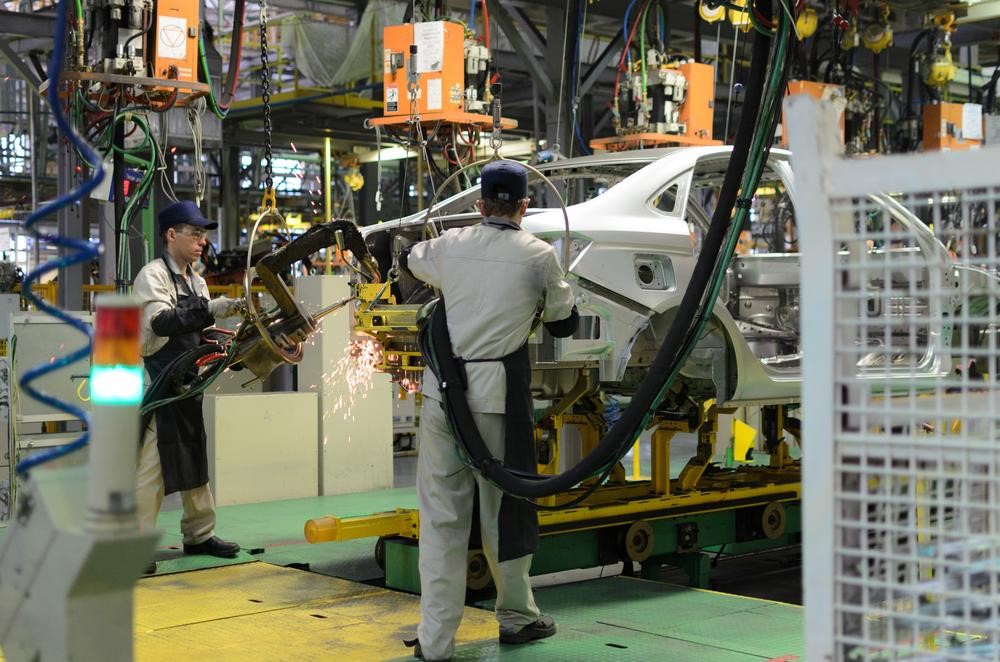Lesotho, a small landlocked country in Southern Africa, is making notable progress in establishing itself as a significant contender in the global automotive sector. With a range of strategic benefits, including its location, supportive business environment, and government policies, Lesotho is becoming an appealing destination for automotive manufacturing. This shift is not only reshaping the country's industrial landscape but also opening up new avenues for economic growth and job creation.
Lesotho's Strategic Benefits
One of the most compelling reasons Lesotho is attracting the automotive industry is its proximity to South Africa, a leading automotive market and manufacturing hub in the region. This closeness provides automotive companies in Lesotho easy access to well-established supply chains and markets in South Africa while also benefiting from lower production costs.
Additionally, Lesotho offers a competitive labor market, with wage rates lower than those in neighboring countries, making it an attractive option for global automotive firms aiming to optimize their manufacturing costs. The country also benefits from preferential trade agreements, such as the African Growth and Opportunity Act (AGOA), allowing duty-free exports to the United States. This makes Lesotho an even more attractive location for manufacturing, giving companies access to international markets with reduced trade barriers.
Government Initiatives and Incentives
The Lesotho government has been actively creating a supportive environment for industrial growth, particularly within the automotive sector. Through the Lesotho National Development Corporation (LNDC), the government offers a variety of incentives to attract foreign investment. These include tax reductions, streamlined regulatory processes, and support in acquiring land for industrial purposes. These initiatives have been crucial in positioning Lesotho as a competitive player in the global automotive market.
Moreover, the government is committed to improving infrastructure, including roads and utilities, which further bolsters the growth of the automotive industry. By enhancing logistics and transportation networks, Lesotho ensures that manufacturers can operate efficiently and meet the demands of both domestic and international markets.
Economic Impact and Job Creation
The introduction of automotive manufacturing plants in Lesotho is anticipated to have a significant impact on the national economy. The influx of foreign investment into this sector is expected to create a multitude of job opportunities, from assembly line workers to skilled technicians and managerial positions. This increase in employment is likely to alleviate poverty and enhance the standard of living for many Basotho families.
Beyond direct employment, the automotive industry is expected to drive growth in related sectors such as logistics, retail, and services. The demand for local suppliers of automotive parts and materials will likely increase, creating a ripple effect that benefits various segments of the economy. This diversification is vital for Lesotho as it reduces reliance on traditional sectors like textiles and agriculture.
Challenges and Future Outlook
Despite these promising developments, Lesotho faces challenges in fully realizing its potential as an automotive hub. These challenges include the need for continuous infrastructure improvements, particularly in rural areas, and the need for a workforce that is skilled in modern automotive manufacturing. Collaboration between the government and private sector on training programs and educational initiatives will be crucial in preparing the local workforce.
Looking forward, Lesotho's success in the automotive industry will depend on maintaining a competitive business environment and adapting to global market trends. As more global automotive companies recognize the advantages of manufacturing in Lesotho, the country is well-positioned to become a significant player in both the African and global automotive markets.
Conclusion
Lesotho's rise as a new frontier in the automotive industry represents a crucial milestone in its economic development. With strategic benefits, government support, and the potential for substantial job creation, Lesotho is well-equipped to attract further investment and expand its automotive sector. As the country continues to build its industrial capabilities, it stands to gain significantly from the opportunities offered by the global automotive market.





